Finding your Community
On the left-hand side of the Communities, you can explore all 42 of our subject-level Research Communities; from Astronomy to Zoology & Veterinary Science. Within each Community you can choose how in depth you want to go – using features such as channels and topics. Read on to find out more.
Activity Feed
Your Activity Feed is a personalised stream that helps you effortlessly stay informed and engaged with the latest content, interactions, and updates across the Communities. Accessible via the left-hand navigation menu or directly at communities.springernature.com/activity, it surfaces real-time posts, likes, comments, and connections from joined Communities and followed individuals and topics, making it easier to track conversations and discover relevant research.
By following Topics, joining Communities, and engaging with other users, you can tailor your feed to reflect your interests and expand your network, enhancing your experience and visibility within the global research community. Read more about making the most of your Activity Feed here.
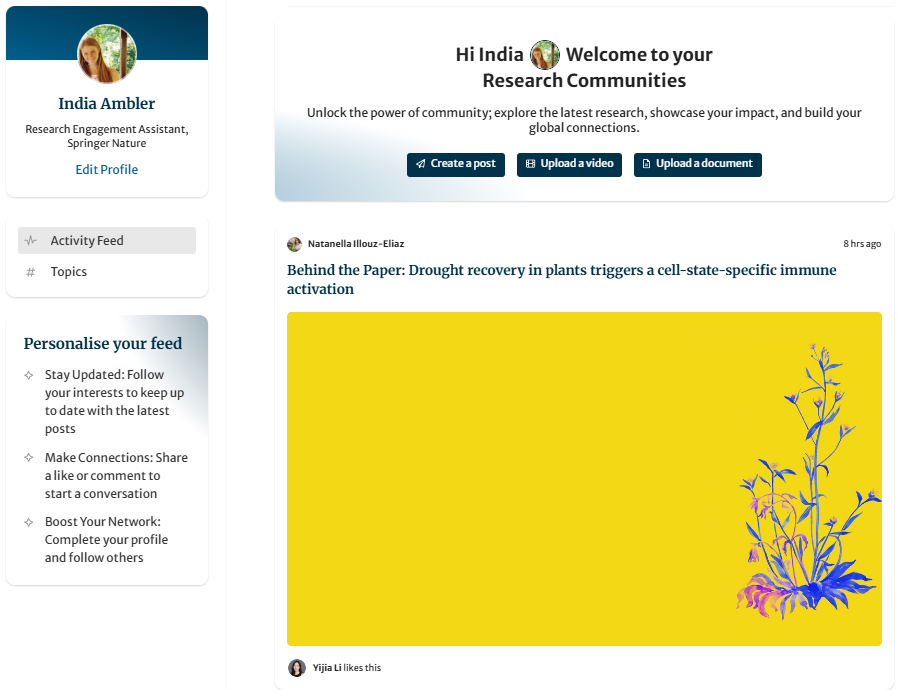
Channels
Within the Research Communities, posts are grouped into channels. Channels allow you to explore similar types of content and easily find what matters to you, whether that is exploring the latest research, sharing opinions, or accessing publishing support. Discover the purpose of each of our Communities’ channels below:

- The Help and Support channel contains a compilation of posts to help you navigate the Communities. This may include helpful tips, suggestions and answers to frequently asked questions about the platform.
- Behind the Paper: these blog posts provide a behind the scenes look at recently published papers. We invite authors to share more about how their studies came to life, the interdisciplinary or collaboration experiences they might have had, and the future impact of their research on the scientific field.
- The News and Opinion channel provides a platform to discuss developments in the field, current affairs, or explore new ideas.
- From the Editors: Here, you can hear from journal Editors, publishing teams, and other Springer Nature staff on a range of topics related to publishing- from advice, tips and tricks to opportunities to publish.
- The Life in Research channel encourages contributors from around the world to share their stories and experiences, both in a laboratory and out in the field.
- Events: Discover events from Springer Nature and beyond that are available and accessible to all Communities members. A great way to build your network and connect with the wider research community
- The Opportunities channel: a space for discovering and sharing research-related opportunities that can help advance your career, broaden your academic network and get more involved in your community. Find out more.
Topics
Topics on posts help you quickly identify what the post is about. By clicking on a topic, you can navigate to the Topic Pages, which are designed to help you keep up with the latest developments in your own field and explore emerging areas of interest. They bring together all content tagged with the same Topic in one place, making it easier to discover more, expand your connections and keep up to date. For more on Topic Pages, read this blog post.
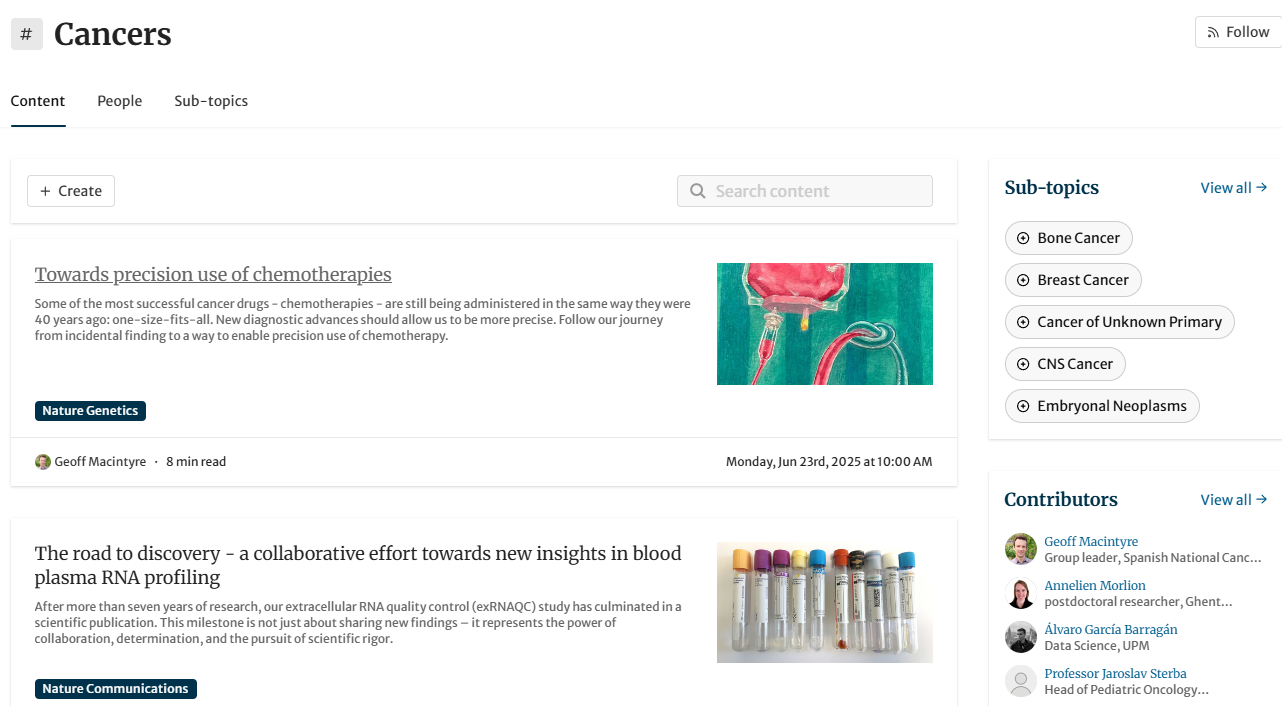
Journal badges
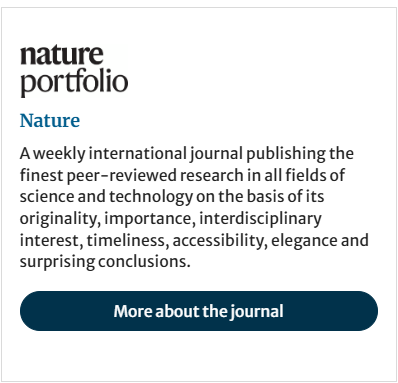
If you’ve found a blog post that’s interesting and are keen to explore more from the same journal – check out the journal badge. The journal badges allow you to discover posts related to a particular journal easily and quickly. You can find them on a post or by searching for a journal title. Adding a relevant journal badge makes it easier for readers to find and engage with your post and other posts they might be interested in.
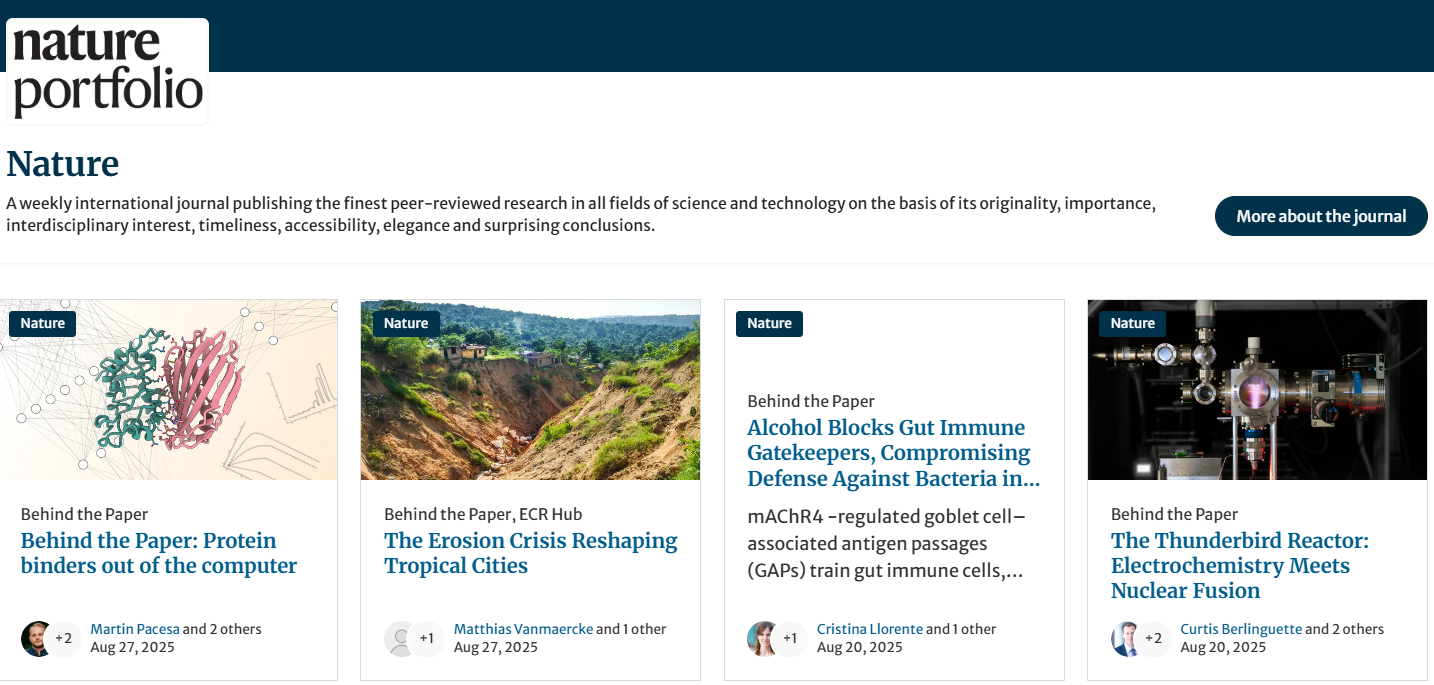
Collections badges
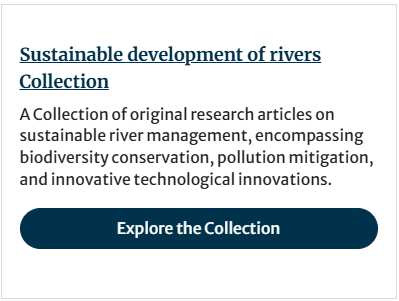
Collections are curated groups of articles within a journal that allow for a highly focused exploration of specific themes and emerging topics in research. In the same manner as a journal badge, authors and editors can add a Collection badge to their posts to highlight that it’s part of a particular Collection. This allows readers to easily find all the blog posts that have been linked to a specific Collection (e.g. Sustainable development of rivers).

We hope this helps you navigate the Communities.
This blog is part of our Welcome Course, helping you to get started in the Communities. Don’t forget you can also visit the Help and Support channel for more information on making the most of the Research Communities.
Please let us know which Reviewer Community you think would best fit your expertise. If unsure or if your field of expertise is not included, select 'other'.